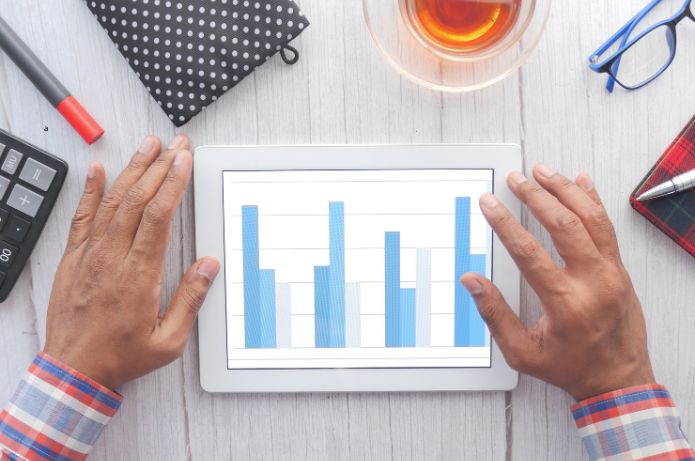Until this year, Artificial Intelligence (AI) in marketing was seen as a trend, with professionals exploring tools like content generators and chatbots. By 2025, research institutes point to a new reality: AI has ceased to be a future promise and is already shaping the market concretely.
The newly released report The Year of Impact, carried out by the global media company Dentsu, for example, indicates that society is entering the “Algorithmic Media Era.” In this era, AI and algorithms will enable personalized and real-time interactions between brands and their customers. In practice, this means adjusting messages according to consumers’ behavior in each micro-moment of their purchasing process: “I want to know,” “I want to do,” “I want to buy,” and “I want to go.”
This near future can be illustrated with Ana, a hypothetical consumer, who is walking around a mall. On her wrist, she wears a smartwatch connected to the internet, monitoring her habits and consumption preferences. In the past few days, Ana has researched various models of smartphones online. Now, as she passes by an electronics store, the store’s AI detects her proximity and, based on recent searches, suggests a personalized offer for the exact smartphone model she had been considering.
“This type of interaction — agile, personalized, and precise — is what we call dynamic personalization of purchase micro-moments; there, AI acts in real time to adjust communication according to the consumer’s immediate needs,” explains Marketing expert Leonardo Oda, who is also the CEO of LEODA Marketing Intelligence.
In the illustrative case, AI analyzed Ana’s behavior and acted at the opportune moment, integrating location and preference data to create a relevant experience. Instead of a generic message, Ana received an offer that seemed tailor-made for her, at the exact moment she was most likely to make a purchase decision.
What lies ahead in AI marketing?
Ana’s story illustrates how artificial intelligence is already transforming marketing, and at the heart of this revolution is AI’s ability to process immense amounts of data. “By analyzing interaction history, geographical data, and purchasing behavior, AI can offer insights that would simply not be possible for a human team,” emphasizes Leonardo Oda.
And what to expect for the future? An even more sophisticated combination of processing large volumes of data, in real time and connected to the so-called Internet of Things (IoT), which gathers information from ‘smart’ devices, such as watches, cars, and appliances. This vast data ecosystem will enhance the ability to capture and understand live consumer behavior. “With this, AI will have more precision to identify what each potential customer wants, often before the person even knows,” predicts Leonardo Oda.
Will there be room for human touch in AI marketing?
Despite the positive aspects of technological advancement in marketing, AI creates the “algorithmic bubble” that limits communication to predictive interests and behaviors, according to the Dentsu report. To break through the bubble, the recommendation is to capture the consumer’s attention in a deeper and more emotional way through storytelling. This is because, as the report states, by telling relevant and resonant stories, brands can overcome the barriers created by algorithms that filter content based on individual preferences.
Leonardo Oda believes that, in this scenario, the combination of advanced data analytics and human creativity will be the differential for brands. While AI enables brands to reach consumers at the right moment, it is human creativity that will turn this contact into a meaningful connection. “The human touch will continue to be essential to create campaigns that truly resonate with people. AI gives us the right moment, but what to say in that moment? That still depends on us,” concludes Oda.







